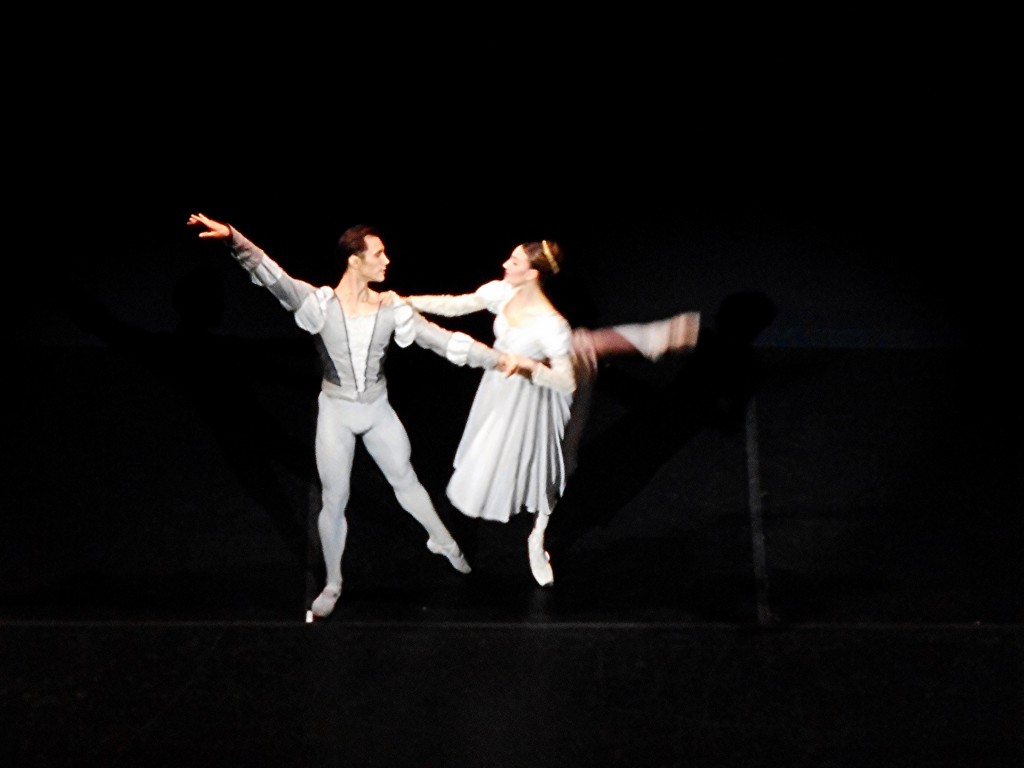Prokofiev's 'Romeo and Juliet' Is Better Than Shakespeare's
Classical Music Hour with Fran

Fine, I get it: it’s the holiday season and you want a ballet. I’m sorry I won’t be writing about The Nutcracker, you’ll be fine, trust me, but I do sympathize. There’s something inherently winter-ish about listening to ballet music. (Google search: “is there a good ballet about summer?” Results: “Top ten ballet summer immersives.” Um, nvm.) Beyond that, listening to a ballet is an extremely chill thing to do. I always find I do my best driving, for example, listening to a musical or a ballet because the pieces, for the most part, are fairly short and it moves quickly with a semblance of a story that’s coherent even if you don’t know what happening.
So here: let’s talk about Sergei Prokofiev’s Romeo and Juliet ballet. It’s a blast. And I know it’s easy to rag on Romeo and Juliet, just conceptually, because it is [extremely English-major voice] not one of Shakespeare’s best and [extremely I-delivered-a-paper-on-Shakespeare-at-a-conference-in-Western-Michigan once voice] not all that deserving of the attention it’s received in pop culture over the years. That said, the Baz Luhrmann version is good because it’s from back when Leonardo DiCaprio was good, and the Prokofiev ballet is, if you can believe it, better than that. Namely because we don’t deserve to give these fifteenth-century teens from Verona the height of cinematic drama for their love; we deserve to give them the gift of dance.
Prokofiev was an early twentieth-century composer, spending most of his training and schooling at the St. Petersburg Conservatory during World War I. It was in his early years, immediately after finishing up at the conservatory, that Prokofiev became interested in ballets. He worked closely with a man named Sergei (just two friends, both named Sergei) Diaghilev, a member of the Russian aristocracy, who often helped to produce and organize ballets. The only reason that I’m including this thing about Other Sergei is because it was Other Sergei who introduced Prokofiev to Léonide Massine (OF ALL FREAKING PEOPLE) to collaborate on his early works.
Not unlike our pal Dvořák, Prokofiev spent a significant amount of time in the United States, both in New York and in Chicago. Prokofiev, however, was less “trying to discover American music” and more was, um, “trying to get out of Russia during the Revolution.” It was on his last visit to Chicago, in fact, that he debuted a couple of scenes from Romeo and Juliet, which he would go on to finish back in Russia.

There are two ways you can listen to Romeo and Juliet. The first is to listen to the full ballet. I like the London Symphony Orchestra recording conducted by André Previn from 1987. It’s two and a half hours long, but keep in mind it moves quickly and you can skip around if you so desire. Or you can listen to an orchestral suite arrangement of it; I’m partial to the Second Suite, and this recording by the Royal Scottish National Orchestra is pretty good. I won’t walk you through the entirety of a two and a half hour ballet, but I can show you some of my favorite parts.
Masks, for example, is perhaps where the ballet really gets going for me. This is the scene in which Romeo and Mercutio show up, in costume, at the Capulet party (cue Leonardo DiCaprio, fish tank, Claire Danes, etc.). We played the Romeo and Juliet suite in college, which includes a refrain from Masks, and I had to play tambourine for it. The whole percussion section for this piece has a back and forth between the tambourine and the snare drum and the triangle. I felt like a profound dumbass the whole time playing it, but the overall sound of “teen costume party” works very well. In any sort of ballet, it’s best to imagine that any instrument’s solo is a substitute for dialogue, so the trumpet solo here is very funny to me as well; it screams, “Hey, there’s girls at this party!”
The next part, and one that I think you’ll definitely recognize is, Dance of the Knights, which is also known as Montagues and Capulets. It’s got this really heavy, brassy sound to it. It’s probably the most classical music-sounding example of “men fighting” or “men dancing” or “men arguing.” This piece is everywhere in pop culture, ranging from its use as walk-on music for Iron Maiden, the theme for both the British and UK version of The Apprentice (I’m sorry for even mentioning this show, I really am, but it felt too prominent to ignore), and most importantly: the theme for the Russians in Civilization V.
And lastly, a little part that I just love, really and wholeheartedly, because it’s upbeat and kooky and fun is the Mercutio theme. It’s everything you want: entrance music for the main guy’s friend: XYLOPHONE, a jaunty little melody. If this isn’t “Enter: Best Friend” music, I don’t know what is. I listened to this particular section when I was making my bed this weekend, and I swear I did it just a little bit faster. But again: these are just tastes. By the time you’ve listened through Mercutio, you’ve still got just under two hours left. If you don’t know how this one ends, well, it’s not my place to spoil it for you.
Fran Hoepfner is a writer from Chicago. You can find a corresponding playlist for all of the pieces discussed in this column here.
